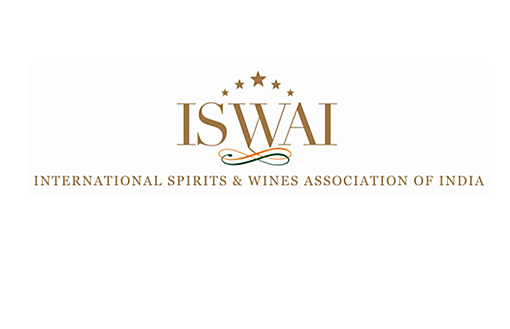- एयरटेल पेमेंट्स बैंक ने अंतरराष्ट्रीय महिला दिवस पर वित्तीय समावेशन में महिला बिजनेस कॉरेस्पोंडेंट्स के सहयोग का मनाया जश्न
- एचडीएफसी बैंक ने उज्जैन “व्यापार मेला 2025” में ऑटो लोन पर विशेष ऑफर्स पेश किए
- रियलिटी शोज़ का नया दौर! अब और भी ज्यादा ड्रामा और रोमांच, सिर्फ जियोहॉटस्टार पर
- फेलिसिटी थिएटर इंदौर में "हमारे राम" प्रस्तुत करता है
- जेएसडब्ल्यू ग्रुप के चेयरमैन सज्जन जिंदल को एआईएमए मैनेजिंग इंडिया अवार्ड्स में मिला 'बिजनेस लीडर ऑफ डिकेड' का पुरस्कार
ISWAI Advocates Educating Citizenson Responsible Drinking

Prohibition is counter-productive and promotes illicit, counterfeit and unsafe products causing health hazards
Madhya Pradesh: Recently there have been statements suggesting prohibition of alcohol in the state of Madhya Pradesh. The International Spirits & Wines Association of India (ISWAI), an apex body of the premium AlcoBev sector, strongly advocatesthat prohibition is a counter productive and retrograde step that will only encourage spurious, illicit and counterfeit products in the market, exposing citizens to substandard and unsafe products. Besides causing loss to thestate revenues, it also promotes an influx of illegal alcohol from neighbouring states and locally produced illegal brews.
Giving a compelling reasoning against prohibition,Ms. Nita Kapoor, Chief Executive Officer, ISWAI said, “We have seen in many states of India where the government imposed a complete ban on the sale of liquor, that it was not at alleffective, but rather it proved to be counter-productive. Prohibition is not a solution as it tends to promote illicit, counterfeit and poor quality products, leading to alcohol abuse.” Emphasizingthe point further,Ms. Nita Kapoor said, “Educating the citizens on responsible consumption is the need of the hour. Prohibition defeats the purpose for which it is promulgatedas it ultimately leads to encouraging bad practices. The government of Madhya Pradesh needs to closely analyze the outcomes of prohibition of alcohol, as in addition to significant loss to its exchequer, it also causes collateral damage to interlinked industries such as Hospitality and Hotels, Restaurants, Café (HoReCa), the agriculture sector,etc”.
Prohibition leads to loss of control over the establishments where production sale/consumption takes place. Instead, consumption of alcohol spreads through speakeasy restaurants, middle-class neighborhoods or business districts that were formerly tightly regulated. Ms. Nita Kapooradded, “Once there is a loss of control over the source of alcohol, there can be no mechanism to findout what kind of alcohol is making its way into the marketplace; hence the abundance of ‘hooch tragedies’.”
Underscoring thelearnings from other states, Mr. Suresh Menon, Secretary-General, ISWAI, stated, “Imposing a complete prohibition on liquor in many states has not proved to be successful. It is critical to learn from the Kerala experience, where prohibition in the AlcoBev sector led to a loss in state revenues, a decline in national and international tourism, thereby resulting in job losses in the industry value chain, especially in the HoReCa sector. Similarly, recently the Andhra Pradesh government announced a progressive liquor policy by moving away from Prohibition to Restriction. The negative fallouts of the earlier policy havebeen a decline in tourism, a drop in state revenues, mushrooming of illegal, spurious products and bootleggers, increase in smuggling of liquor from neighboring states, etc.”
The Finance Minister of Madhya Pradesh, Mr. Jagdish Devda mentioned in the state assembly that the revenue collection from Value Added Tax (VAT) on liquor increased to Rs 1183.58 crore during 2020-21 from Rs 938.28 crore in 2019-20, a rise of 26.14%.
Additionally, the state earned a revenue of Rs 10,800 crore from Excise Duties on Alcoholic Liquor in 2019-20 (as per PRS Madhya Pradesh Budget Analysis 2021-22 ) and expected to generate Rs 12,109 crore in 2021-22 through the collection of state excise, an annual increase of 6% over 2019-20.
Stressing on the long-term solution, Ms. Nita Kapoor further added; “A balanced pragmatic and transparent approach to doing AlcoBev business is the way forward to build the economic opportunity for the state.A Progressive and Predictable Policy encourages Premium Brand owners who implement international standards and bring in high quality in every aspect of the manufacturing process. The government should look at adopting policies to reduce and eliminate the illicit production, sale and distribution of alcoholic beverages as well as to control the availability of informal alcohol”.
Highlighting a ‘3E Framework’ for developing a progressive liquor policy in the state, Mr. Suresh Menon stressed on a long-term solution of devising Excise Tax implementation (designed in a mannerthat prevents incentivization of smuggling of liquor); an effective Enforcement mechanism, and Education by building a culture of responsible drinking and consumption.
ISWAI,along with its member companies, supports Indian state governments in devising a consistent and progressive alcohol policy and aims to enhance general education concerning the responsible consumption of alcoholicbeverages.


